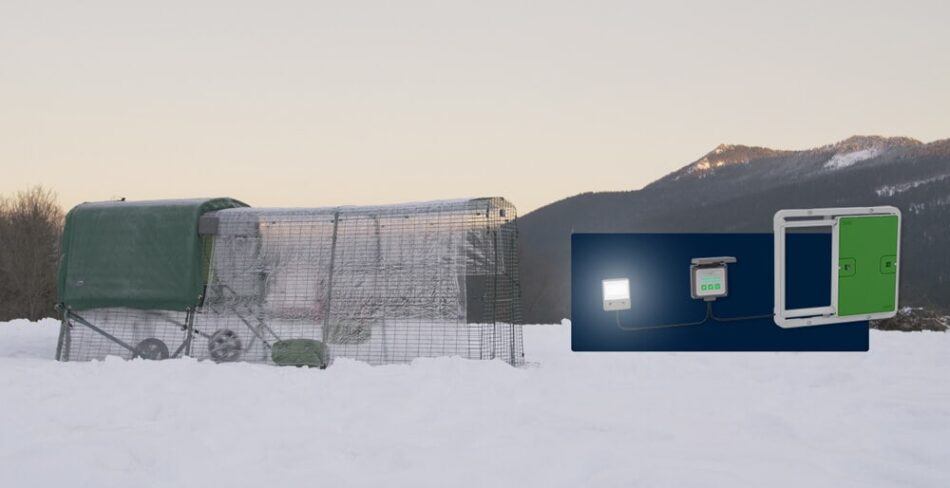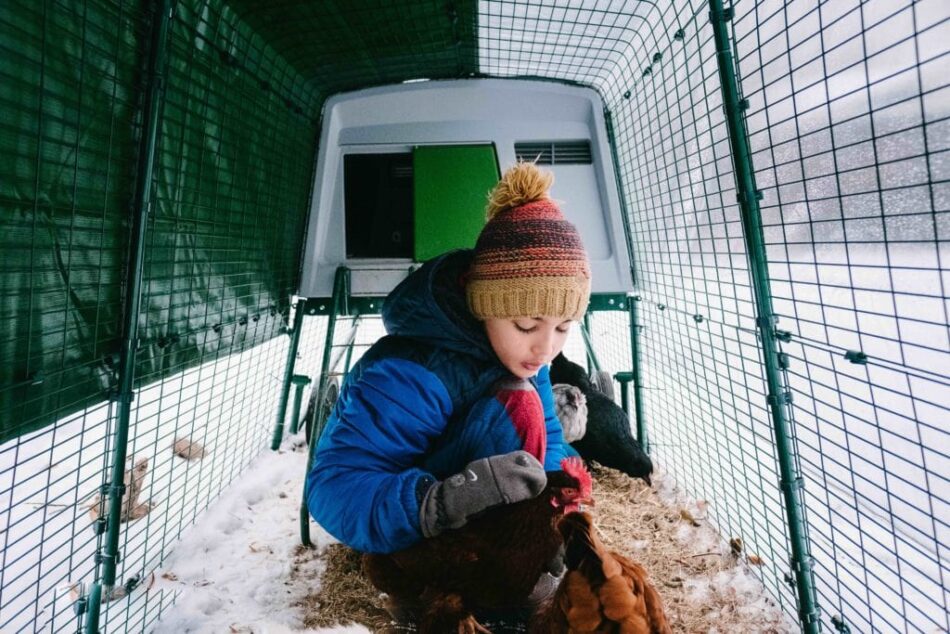How to prevent your hens’ eggs from freezing
If you live anywhere subject to cold temperatures, chances are good that you’ll encounter a frozen chicken egg in the nesting box. Frozen eggs are less than ideal for numerous reasons – but they can be avoided. Here are some quick tips to show you how to prevent your eggs from freezing before you get to them.
Why do eggs freeze?
Eggs are mostly liquid inside until they’re cooked or are able to develop into a chick – and like other liquids, they have a freezing point. Chicken eggs freeze around 29℉, and can freeze solid in just a couple of hours. Since a non-broody hen doesn’t sit on the eggs for long, eggs laid in the nesting box are susceptible to the cold.
How can I tell if an egg is frozen?
Frozen eggs may feel more dense than usual, and may also crack, burst, or bulge from the internal pressure. Some eggs may not be completely frozen when they’re collected, and if you use them right away, you may see the partially frozen egg white. Partially frozen eggs may also feel off-balance in your hand, or make an audible sound when shaken.
Can I use frozen eggs?
Eggs that have frozen don’t have the same consistency or taste that you would normally expect from fresh eggs. Frozen eggs can be thawed and eaten, but due to their makeup, their texture will be grainy and unpleasant. Frozen yolks that have thawed will be thickened and gelatinous, losing their ability to be mixed well.
Any eggs that have cracked or appear misshapen from pressure should be thrown out – including those that have frozen. Once the shell of an egg has cracked, it exposes the egg to bacteria and other contaminants that can make you ill. It’s in your best interest to toss frozen eggs and focus on preventing them from freezing in the first place.
3 ways to prevent eggs from freezing
Insulate your coop
Insulated chicken coops help contain the body heat from your hens and keep it from dispersing too quickly. It also minimizes the effects that the exterior temperature has on the interior, keeping the coop warmer than the ambient temperature. You can attempt to insulate your existing chicken coop – but be sure not to limit the ventilation, which is important during the winter months to prevent moisture buildup. Our line of Eglu Chicken Coops have twin-wall insulation with draft-free ventilation to keep the coop comfortable during the cold. Extreme temperature protection can also be added to further insulate our coops in especially cold climates.
Focus on the nest box
Make the nesting box as warm and inviting as possible. Thick bedding like straw is a good choice for winter nesting box comfort. You can also hang strips of thick fabric like fleece as a curtain in front of your hens’ nesting area to further insulate against the cold. Chicken nesting boxes should be elevated above the frozen ground, and warm enough to prevent the eggs from freezing until you’re able to collect them.
Collect eggs more frequently
During the winter months, it’s important to check for eggs several times a day to prevent them from freezing. While chicken eggs can stay in the coop for several days under normal circumstances and still be edible, frozen eggs should be avoided. Hens typically lay their eggs mid-late morning or in the early afternoon. It’s good practice to check the nesting box after your morning cup of coffee, after lunch, and at least one other time before dark.
What to avoid when preventing eggs from freezing
There are some insulating or heat-producing measures that may be tempting to take in order to prevent your eggs from freezing, but be sure to avoid:
- Placing a heat bulb or plate inside of the coop, as this will make your hens too hot and potentially cause them to go into shock when they venture out into the cold temperatures.
- Completely sealing up a chicken coop – this prevents air from circulating and will encourage moisture buildup on the coop and your hens, which can lead to respiratory illness and frostbite on their combs and wattles.
- Offering blankets or other cloth as nesting box bedding. Hens’ claws can easily become snagged in fabric and cause injury.
Omlet and your eggs
Our range of Eglu Chicken Coops all feature the same expertly designed insulating methods to keep your hens as comfortable as possible in all weather conditions. And, with the addition of an automatic chicken coop door, you can schedule your hens to stay in their coop during the coldest parts of the morning – adding heat to both the coop and their eggs. When you choose an ingeniously insulated Omlet chicken coop, you can have confidence that your chickens are comfortable when they roost, play, and lay their eggs.
This entry was posted in Chickens

